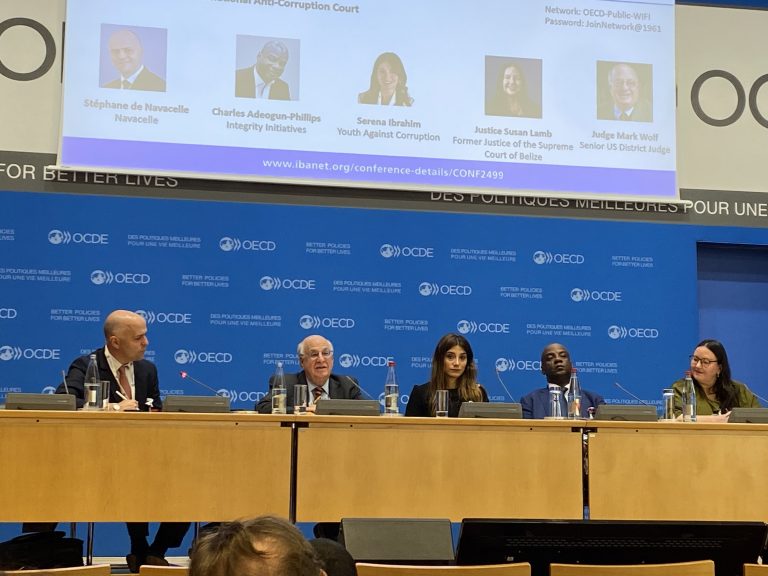The 2017 French Corporate Duty of Vigilance Law1(hereinafter DVL) has established a legally binding obligation for companies which, at the end of two consecutive financial years, employ at least five thousand employees in France or ten thousand within the company and its subsidiaries2, to prepare, publish and implement a vigilance plan.
For the approximately 150 companies falling under the scope of this law3, a vigilance plan must thus provide reasonable measures to be implemented within the company. Those measures aim to identify and prevent serious human rights and fundamental freedom violations resulting from the company’s activities, from activities of its subsidiaries, its subcontractors and its suppliers, or from entities with whom the company has an established commercial relationship4.
However, questions remain with respect to the scope of this law. Indeed, it remains unclear whether it refers exclusively to the first tier of a supply chain (direct contractual partner) or to its additional tiers further along the chain5. In addition, there are no implementation decrees, or clear legal definitions provided by the law of what constitutes a serious human rights violation.
The idea of addressing certain elements of human rights due diligence by establishing laws and policies has been gaining momentum across the European Union (UK’s Modern Slavery Act in 2015, France’s Corporate Duty of Vigilance Law and the Netherlands’ Child Labour Due Diligence Law in 2017) and within the institution (the Timber Regulation in 2013 and the Regulation on Conflict Minerals in 2017).
On 29 April 2020, the European Commissioner for Justice, Didier Reynders, announced that the EU was committing to introduce legislation by 2021, requiring businesses to carry out due diligence in relation to the potential human rights and environmental impacts of their operations and supply chains6.
Faced with the fact that the effectiveness of the French duty of care law remains limited because of these questions regarding its scope of application, many expect a clarification from the European text.
The French Corporate Duty of Vigilance law: ambitious but unclear
A poorly developed due diligence mechanism pertaining to the prevention of human rights violations
Unlike the UK’s Modern Slavery Act for instance, which relies on companies’ information and reporting obligation, the DVL is based on a due diligence mechanism and requires companies to establish, publish and implement a vigilance plan.
In that respect, the law clearly defines five mandatory actions, companies must implement as part of their vigilance plan
- a risk-mapping that identifies, analyses, and ranks risks of serious violations of human rights and fundamental freedom;
- evaluation procedures that regularly assess, in accordance with the risk-mapping, subsidiaries, subcontractors or suppliers with whom the company maintains an established commercial relationship;
- appropriate actions to mitigate risks or prevent serious violations;
- This alert mechanism must be implemented in unison with trade unions organisations represented within the company concerned; and
- a monitoring scheme assessing the effectiveness of the measures put in place by the company.
In practice, a study which reported on the first published vigilance plans, highlighted that most companies performed or initiated new efforts to identify an at-risk supplier7 .
However, it was also underlined in another report that these objectives were only partially met. This report pointed out that ‘the plans are very heterogeneous, which shows that, faced with the novelty of the exercise, each company has applied the law with disparate levels of requirements, with most plans still very much focused on the risks for companies, and not for third parties or the environment’8. In 2019 the findings were similar, with only 15 per cent of the companies presenting a finalised plan9.
According to a recent report by the Conseil Général de l’Economie submitted to the French Ministry of the Economy, this is mainly due to the lack of understanding of the law by the companies: ‘this fog over the Duty of Vigilance pushes companies to be cautious, waiting for the first cases to come before the courts’10. This goes to show that the requirements of the law and for any due diligence model to be successfully implemented must be clearly defined.
Ineffective remedies for violation of the Corporate Duty of Vigilance law
The DVL provides that if a company fails to establish, implement or publish a vigilance plan containing reasonable measures preventing serious human rights or fundamental freedom violations, any party that has standing may send a formal notice to a company to comply with this obligation.
If the company still fails to meet its obligations after the three-month period, the party can file a claim before the French courts and seek an injunction for the company to be ordered to comply with its obligation, under penalty11. Initially, the law also allowed the courts to impose a civil fine of up to 10m euro in case of non-compliance, but this disposition was struck down by the French Constitutional Council on the basis of the principle of legality12. A company can also be sued for any damages arising out of a violation of its obligations to implement a vigilance plan13.
The employers’ union, as well as some French politicians, voiced their concern regarding the DVL insofar as they argued that it could adversely affect the competitiveness of French companies due to these regulations.
In practice, in June 2019, Total became the first company to receive a formal notice for failing to comply with its duty of care regarding climate change and the human and environmental impacts of its subsidiary and its suppliers in Uganda14. This case was the first to be taken to court, in December 2019.
However, on 30 January 2020 the court ruled that it did not have jurisdiction and ordered for the case to be referred before the commercial courts. The appeal hearing, planned for 28 October 2020, will provide the first indications regarding the practical implementation of this law including issues on jurisdiction.
An expected EU-wide mandatory human rights due diligence law
In regards to EU legislation, the announcement of the European Commissioner of Justice came after the publication of two documents: a study on due diligence requirements through the supply chain by the European Commission (hereinafter the ‘Study’) and a briefing on ‘Human Rights Due Diligence Legislative Options for the EU’ (hereinafter the ‘Briefing’) requested by the European Parliament.
A clearly defined mandatory Human Rights Due Diligence (mHRDD) legislation
The Briefing recommendations sketches the outline of a future law and suggests adopting an extended scope regarding to which companies it should apply and the scope of violations that this legislation would cover.
Considering the difficulty in establishing a threshold, and the fact that the risk of violations is not limited to bigger companies, the Briefing underlines the necessity for the mHRDD legislation to cover every company, specifying nevertheless that an adaptation of the regulation – based on a proportionality principle – to the different size of companies and the different scope of supply chains is needed.
In that respect, it recommends including any company which is established within an EU Member State but also any company placing products or providing services on the European market – regardless of their size or sector15. This would create a larger scope than the DVL provides currently, which is limited to effectively very few companies.
Regarding the scope of violations of human rights that would be covered, the Briefing argues for European legislation to be as broad as possible and mentions requirements for the companies ‘to engage actively in analysing, mitigating and remedying any adverse impacts on human rights’16. In this regard, the only difference with the French law would be to explicitly mention the most important human rights violations that would fall under the regulation to avoid the uncertainties of the French law17 that never defines the concept of a ‘serious violation’.
Finally, regarding the business activities covered, the Briefing underlines the necessity to include all business relations in the value chain in order to refrain from creating arbitrary distinctions between companies with different productions schemes or incentives to circumvent due diligence by further outsourcing18.
A limited European Human Rights Due Diligence (mHRDD) legislation when it comes to sanctions
The future European legislation would not aim at determining sanctions but rather at affording discretion to Member States to adopt the suitable implementation mechanisms.
Indeed, although the Commission study underlines that a prescriptive approach may be more likely to secure an EU ‘level playing field’, the Briefing points out that the scope for an EU due diligence law to define criminal sanctions would be limited given the EU’s restricted jurisdiction in this area19.
Thus, it appears likely that future legislation, should it be implemented, would rely on a dual implementation mechanism. The EU would publish guidelines and directives addressing effective enforcement action, and Member States would be responsible for the determination of effective, proportionate and dissuasive penalties for non-compliance by companies with due diligence obligations.
While the exact regulatory mechanisms of a future European law remain vague, the recommendations drawn from the Briefing and the Commission Study allow the identification of areas of reflection for an effective implementation of a mHRDD. Above all, this future regulation suggests a revision of the French DVL, which would be clarified by following the contours of European legislation. A new revolution after the Sapin II law?











